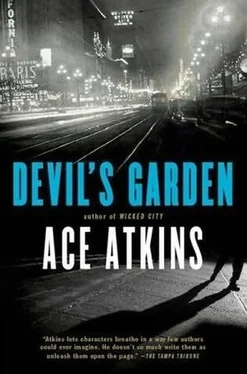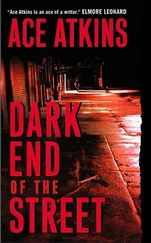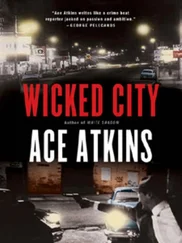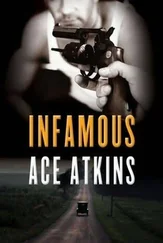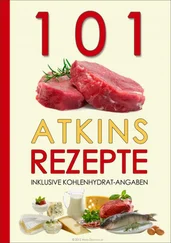He ordered a Scotch and sat at a corner table. The rest of the Rose Room empty.
The walls were stained paneled wood, with a lot of low light and brass, and a large mural against the far wall that the waiter had said once hung over the bar before they broke it up.
The painting was of a strange-looking old man dressed in a harlequin checkerboard getup leading children away from a village by playing a flute. The little children raced with determination to catch up while others walked along bored or sat under great twisted trees the way you find trees in California, corrupted by the salt air from the Pacific.
Al had another Scotch and stared so long at the mural that it became real to him. The rough boulders, the failing light of day, and a giant stone castle on the hill. One boy in particular seemed so strange and foreign but known to him. He seemed the most important of the bunch, racing in jutting determination with the Pied Piper, mirroring the older man, trailing in the failing yellow California light and going somewhere over the rough little hills and boulders whittled away with time. The boy and the Piper the same, walking with the same stride, the same face, only the man much, much larger, towering over them all, but walking with a youthful stride, seeming to know exactly where he was headed.
Al finished his drink, knowing he couldn’t pay for it.
He decided to put it on Maude’s tab and had a laugh at that.
About that time, he watched a fat man enter the bar in a silk bathrobe and slippers and recognized him instantly as Frank Dominguez. He’d never met Dominguez officially but had seen him plenty on the Paramount lot and knew he was a regular at Jesse Lasky’s poker games.
Dominguez took a seat under the mural.
Al smiled at his luck.
With a self-confidence that only a strong drink can give, he pulled up a chair and sat down.
“Can’t sleep.”
Dominguez shook his head.
“Lots to worry about with the police court and all.”
“We’re not talking to the press.”
“I’m not the press.”
“Then who the hell are you?” Dominguez said, putting fist to mouth in a giant yawn.
“Your new best friend.”
Dominguez signaled the waiter, slumped against a back wall, for another round.
When Minta arrived at the Hall of Justice it was early morning and Roscoe had been asleep on his bunk, dreaming of the dusty town where he’d lived as a boy in a little hotel closet alone, scrubbing floors and cleaning spittoons and falling in love with this nineteen-year-old singer who smelled of lilac and taught him to harmonize and dance. The meeting of their voices on a tinny old piano had made him smile and feel warm as he slept until he heard the clank and turn of the key and he imagined he was driving a wagonload of meat, reins in one hand, some little girl’s knee in the other, and the wagon suddenly buckled and tilted on a wide dusty road and the whole thing tipped and fell and he awoke on a stone pillow looking up into the face of Minta.
“Hello there, honey dear,” she said.
He smiled.
“How’s my boy?” Ma Durfee said.
The door jangled closed and the lock clicked.
Roscoe found his feet and fisted the sleep from his eyes. He stood and hugged Ma first and then Minta, still feeling inside a dream. He held Minta close and saw her angelic face, the soft reddish brown hair peeking out from a silken turban, beads of gold dangling from one side of her face like a veil.
Ma smiled a toothless smile and pinched his cheek.
“How ’bout a family shot for the boys?” asked a man with a camera.
Roscoe picked up the bunk rail with one hand and twisted it to run lengthways with the wired wall of the cell. He gathered Minta to sit on his right and Ma on the left, their backs turned to the dozens of newspapermen who the jailer had let in. The newsboys called to them and muttered but never moved, standing close to the wire wall, listening and scribbling down every breath and gesture.
Roscoe placed a meaty paw around Minta and Ma and whispered, “My best friends in all the world. How was the trip?”
“There was a train wreck in Iowa,” Ma said. “They served minestrone soup and cheese biscuits. Twice.”
“We stayed an extra day in Chicago,” Minta said in a whisper. “I met people who knew the Rappe girl.”
“Later,” Roscoe said. “Have you a hotel?”
“Mr. Dominguez got us a room at the Palace.”
“You’ll love the Palace. Say, Ma, they have this wide-open space in the middle of the hotel called the Garden Court. The ceiling is made of glass, and it’s so big that sometimes birds live their whole lives inside, hopping back and forth on the fig trees.”
“Do you like minestrone?” Ma asked.
“Better than this jail grub.”
“I spoke to Mr. Dominguez’s partner, Mr. Brennan,” Minta said, pulling off her gloves and placing them in her neat little jeweled purse. “He met us in Sacramento and rode with us to Oakland. He’s going to cable men in Chicago. This girl had a very low start, Roscoe. She was an orphan who turned to men for money. She has a child and was known to be quite loose.”
Roscoe walked to his homemade coat hanger and slipped into a fresh dress shirt, pulling suspenders over his large shoulders. He washed his face in a small bowl and stared at his ruddy cheeks in a rust-flecked mirror.
“I have to be in court today,” Roscoe said, toweling off. “I wish I could show you the city, Ma. I’d take you down to the wharf and we’d eat steamed crabs and motor down to this wonderful garden in the park. You’d just love it. You could get lost there for days.”
Roscoe felt Minta’s eyes on them.
“Come now, Minty,” he said, “Mr. Dominguez will straighten all this out. You know I didn’t touch that girl.”
“Roscoe!” Minta said.
“I’m sorry,” Roscoe said, looking down at the beaten-wood floor and the silk socks on his feet.
“Why would you say such a thing to me?” Minta asked.
“You look thin,” Ma said. “I’m sending out for food. How ’bout a big plate of spaghetti?”
Roscoe hugged them, pulling them both in close, their backs silhouettes and questions to the newsmen. He heard the men grumble and groan, big flashes exploding and popping in the long hall. One reporter complained to the jailor that the big gorilla wouldn’t even turn around and that he wanted his dollar back. And finally Roscoe had enough, releasing his weight from the bunk and stepping toward the mesh-screen wall, an open frame looking back through the little wire squares at the newspapermen, and he asked who’d called him a gorilla.
The men scribbled and grinned, one more than the others, and he smiled even more as he mashed a cigarette under his heel. Roscoe put his hand to the mesh, running his hand over the wire, and looked at the man, saying, “How ’bout five minutes alone in here, bub? Anytime you like.”
The flashes snapped so quickly they blinded Roscoe and he hit his hand hard against the cell frame, rattling the cage, not eliciting fear but excitement, the questions coming at a furious pace.
Why’d you do it?
Did she scream when you squished her, Fatty?
How’s the dryin’ out taking you?
He bashed the wall with the flat of his hand until Minta grabbed his wrist and led him back to the bunk, where he rested the weight of his head in his large hands. Ma stood and walked over to Roscoe’s suit of clothes and shifted them on the hanger, straightening out the wrinkles, and pulling a scarf from her purse to buff out his shoes.
The newsboys were still calling out questions as the jailor ushered them out.
“How long has it been?” Roscoe asked, kissing the side of Minta’s face. She smelled of French perfume and the cleanness of powder.
Читать дальше
